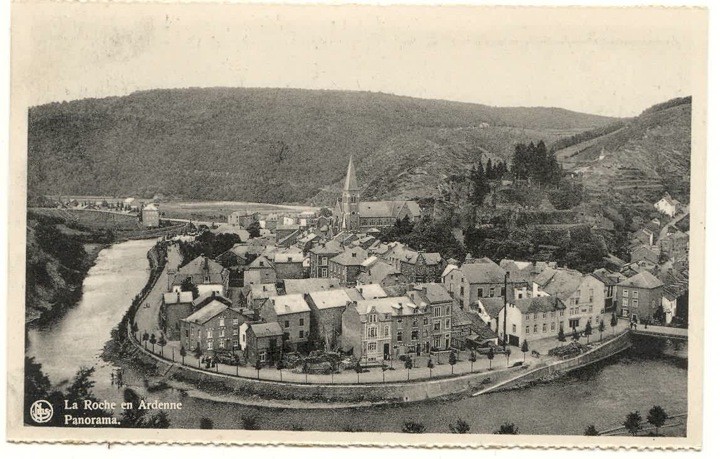On September 9, 1944, the retreating German army wanted to destroy the town's two bridges. Explosive charges were placed under the Pont du Faubourg, but it only partially gave way, stabilising in a “V” shape. With the American army already a few kilometres away, the German engineers decided to leave the bridge as it was, allowing American vehicles to cross the river during the first liberation late that afternoon.
La Roche-en-Ardenne became a garrison town and the municipality installed a footbridge. Flooding in November 1944 led the American engineers to build a Bailey bridge in its place. When the German army attacked again in December, the bridge was still in place and became an important crossing point for units heading for Antwerp.
On 19 December, American Lieutenant McKinley was ordered to have explosive charges placed under the bridge. The next day, under the first German shells, the American troops rushed out of the town and McKinley was finally ordered to keep the bridge standing. By the time it had reached La Roche, the German 116th Armoured Division found Bailey's bridge unreliable and decided to cross the Ourthe at Hotton via Samrée and Dochamps. Facing strong Allied resistance, this unit finally returned to La Roche on 21 December, where it took the town without a fight.
The tragedy came on December 26 when the bridge was still intact and an Allied aircraft bombed the town. On December 27 and January 1st, the massive bombardment continued, destroying the bridge and a large number of homes. These attacks had the effect of neutralising the German forces still trapped in the valley. Among the civilian population, there were 114 victims of the bombardments and collateral damage with disastrous consequences. The Pont du Faubourg has existed in its current form since 1952.
